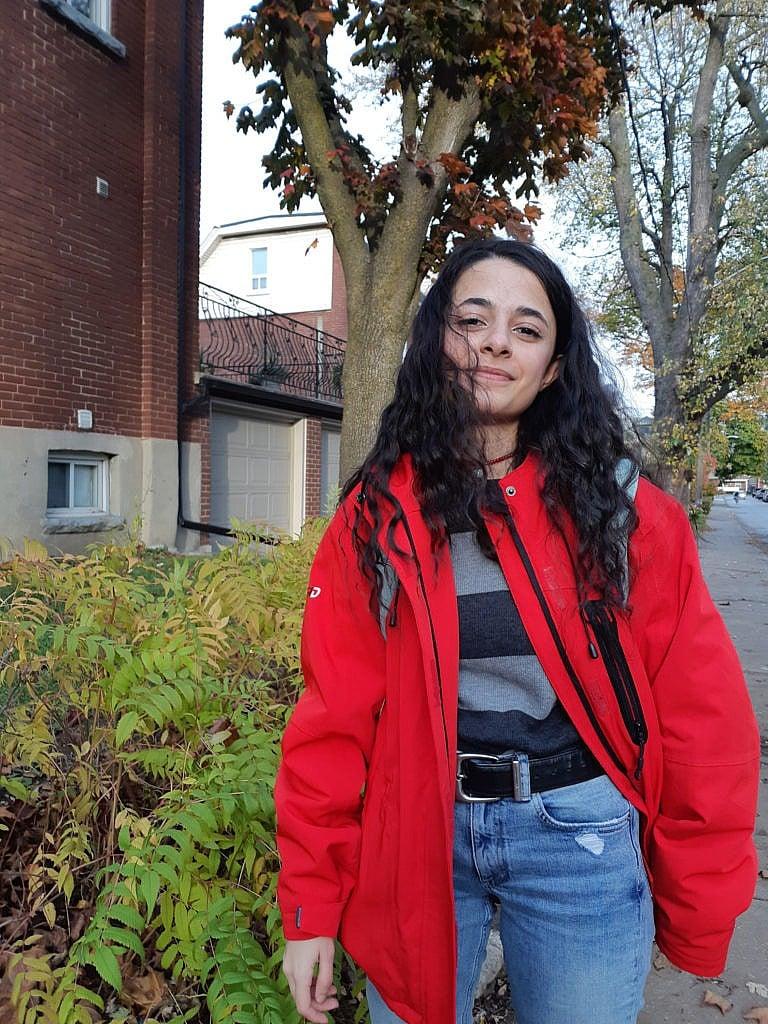The strange experience of starting university during a pandemic
It isn’t easy, but being able to study during the crisis is a blessing, says Sham Al Mukdad, a Syrian-Canadian who lived most of her life in Syria and experienced a different, harsher kind of lockdown

Sham Al Mukdad (Courtesy of Sham Al Mukdad)
Share
I didn’t expect to start university during a pandemic. But I always remind myself to look at things with a positive eye, and doing that has made everything much easier to cope with.
I arrived in Canada about five years ago, so I didn’t really know what to expect when I went to university. All I hoped for was that I would study something I truly loved, and now I am: language and intercultural relations at Ryerson University.
READ: ‘Life isn’t a given, it’s a gift’: Read this Syrian-Canadian teen’s valedictorian address
I can look like an extrovert because I ask way too many questions. I’m actually an introvert, however, which really helped with online university. I didn’t have to introduce myself in front of people that I didn’t know. I didn’t have to worry about mispronouncing the name of my program, and then mispronouncing everything I said after that because I was thinking about people thinking about me mispronouncing my program’s name!
When I started university, I had no idea what a syllabus was and I didn’t know that professors could talk for two hours and never get tired. On my first day, I had a writing and research class. I had four different colours of highlighters, pens, pencils and a ruler laid out on my desk. After the lecture was finished, I had nothing written down, my palms were sweating and my heart was racing. I closed my laptop and almost burst out crying. I am used to having at least a general background knowledge of what I will be studying, but I had no idea what the professor had been talking about.
I gradually settled in and began to enjoy my classes. I was especially fascinated by language and thought: how people who speak different languages have different ways of thinking and yet are still able to understand the complexities of phonemes, morphemes, syntax and semantics of other languages. I also learned how important it is to be critical when watching the news. I began to think of the future as truly being in the hands of whoever is willing to step up and create a change, no matter how small.
I joined WhatsApp and Instagram group chats for all of my courses. I felt less lonely because everyone was struggling in similar ways. Many people were very supportive and tried to help by sharing notes or explaining things from lectures.
I lived most of my life in Syria, where I experienced a different kind of lockdown, a harsher kind. We didn’t know whether we would be able to buy food for the next week, whether we would be able to contact our loved ones or whether the electricity would be turned back on again. We were surrounded by blasting bombing sounds and loud, frightening silence. People in my city were afraid of the minute that separated us from death. Days before we went into lockdown in Syria, I saw my best friend and teachers for the last time and I still know nothing about what happened to them after that.
The sudden lockdown in Canada was similar to what I experienced in terms of not being able to go back to physical school again. However, in Canada, the government had a hand in helping students to continue learning. In Syria, the government and the Syrian dictator started a war against Syrian civilians that prevented children from learning. It is sad to say that education can be a right for some people but a privilege for others.
The fact that I am still able to learn and get a university degree while being in a lockdown is by itself a blessing. I am thankful that I still get to learn about everything in this world, and that I am able to pay for a university education. I am thankful that our generation proved to the world that we are able to deal with a worldwide pandemic while fighting climate and social and political crises. I am extremely thankful that I get to see and talk to my parents every day and that, so far, no one in my family has had the virus.
I always have high hopes for things to get better but I also am always willing to adapt to “new normals.” No matter how negative circumstances may seem, I will always try to find little pieces of happiness in every small corner around me and to remind myself that, as small as some things may seem to me, they are probably huge and precious to someone who doesn’t have them.
This piece appears in print in the Maclean’s 2021 Canadian Universities Guidebook with the headline, “A year to remember.” Order a copy of the issue here.